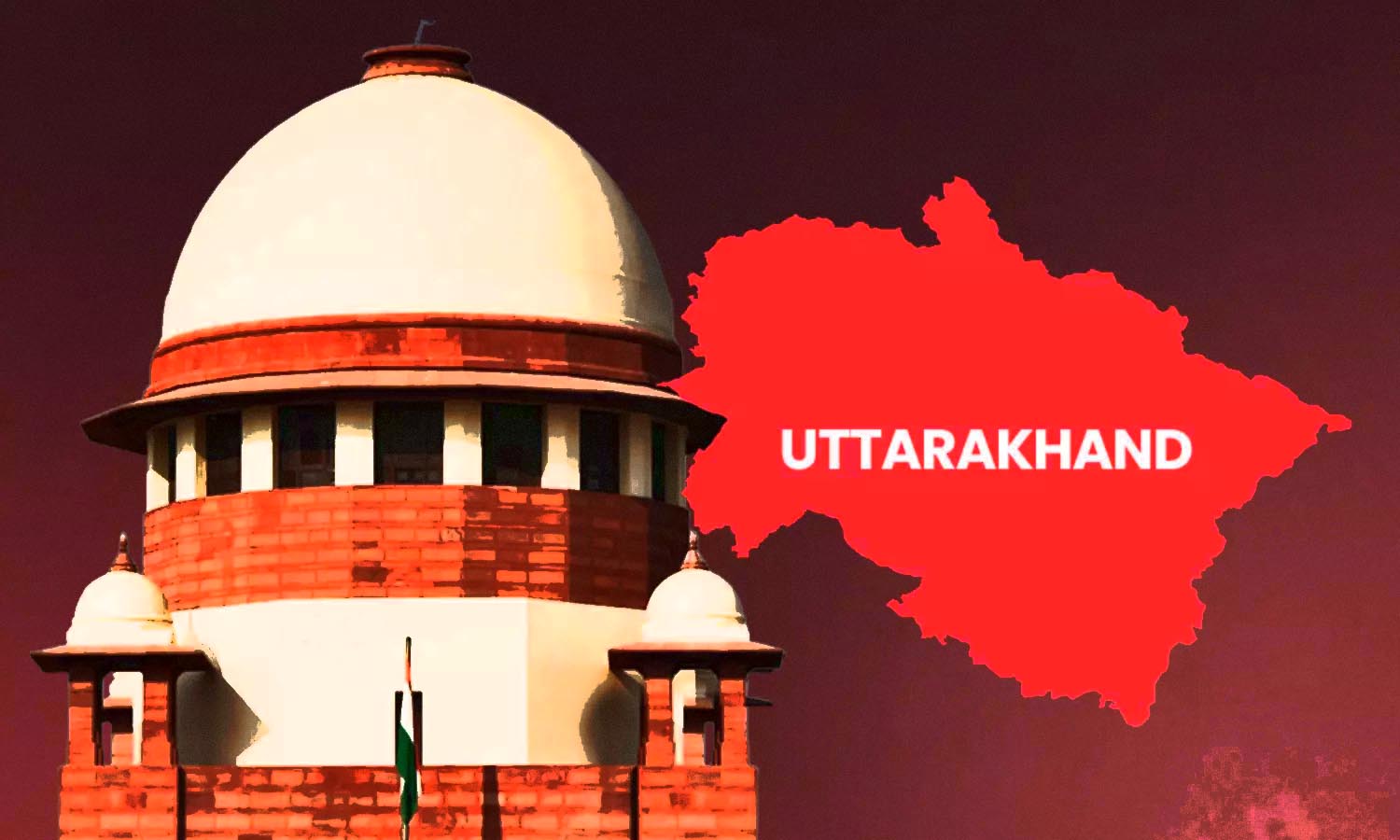In a strong rebuke to the Uttarakhand State Election Commission (SEC), the Supreme Court on September 26 imposed a fine of Rs. 2 lakh for issuing a clarification that allowed candidates with names in multiple electoral rolls to file nominations — a move the Court called contrary to the law.
A Bench comprising Justice Vikram Nath and Justice Sandeep Mehta dismissed the SEC’s appeal against a July 2025 Uttarakhand High Court order that had stayed the controversial clarification. The apex court upheld the High Court’s reasoning, and said the SEC’s stand was legally untenable.
“When the Statute expressly prohibits the registration of a voter in more than one territorial constituency or electoral roll, the clarification issued by the State Election Commission appears to be in the teeth of the law,” the bench observed.
The Court refused to entertain the SEC’s argument and expressed displeasure at how a statutory body could override express legislative provisions.
What the clarification said
The SEC had issued a notice stating that a candidate’s nomination would not be rejected merely because their name appeared in more than one Gram Panchayat, Territorial Constituency or Municipal Body’s electoral roll.
“The nomination paper of a candidate will not be rejected only on the ground that his name is included in the electoral roll of more than one Gram Panchayat/Territorial Constituencies/Municipal Body”, the SEC clarified
This clarification came after complaints were filed during local elections alleging that several candidates were registered in multiple rolls but were still allowed to contest. The SEC defended the move as a procedural interpretation, not a violation.
Supreme Court calls out SEC overreach
However, the Supreme Court was clear that such an administrative clarification cannot dilute or override clear provisions of the Uttarakhand Panchayati Raj Act, 2016. The relevant law — Section 9(6) and 9(7) — explicitly bars voters from being listed in more than one territorial constituency or electoral roll.
“The clarification appears to be contrary to the mandate of the statute. It deserves to be stayed and shall not be acted upon,” the top court ruled.
By backing the High Court’s stay, the apex court not only dismissed the SEC’s appeal but also imposed costs — sending a strong message about accountability in electoral governance.
Order of the Supreme Court dated 26.09.2025 can be read here
Petitioner flags violation of electoral integrity
The original case was filed by Shakti Singh Barthwal before the Uttarakhand High Court on July 9, 2025. He alleged that the SEC had failed to properly scrutinise nomination papers, allowing individuals registered in multiple voter lists to contest — a clear breach of election norms. His counsel, Advocates Abhijay Negi, Snigdha Tiwari and Sujoy Chatterjee, argued that the SEC’s clarification effectively legitimised a flawed process, putting the sanctity of the electoral process at risk.
The High Court had stayed the clarification and found it to be prima facie unlawful.
High Court had already raised red flags in its order
The Division Bench of Chief Justice G Narendar and Justice Alok Mahra had earlier found the SEC’s clarification to be “in the teeth of statutory provisions.” The Court quoted Section 9(6) and 9(7) of the Uttarakhand Panchayati Raj Act, noting that the law clearly prohibits multiple registrations, whether across panchayats or urban local bodies.
“Such a clarification goes against the express mandate of the law and cannot stand,” the High Court had said while granting an interim stay on the SEC’s action.
Order of the Uttarakhand High Court dated 11.07.2025 can be read here
The next hearing in the case is listed for December 16, 2025 before the High Court.
In Brief: what the law says [Uttarakhand Panchayati Raj Act, 2016]
- Section 9(6): No person can be registered in more than one territorial constituency or more than once in the same roll.
- Section 9(7): No person can be registered in a panchayat roll if they are listed on any municipal or cantonment roll — unless their name is struck off from there.
Background: SEC’s Disputed Move
The controversy stems from the SEC’s attempt to manage administrative complaints during elections by issuing a clarification that candidates need not worry about duplicate entries in different rolls. But instead of easing confusion, the move backfired legally — leading to a judicial dressing-down and now a financial penalty imposed by the Supreme Court. Election commissions are bound by statutory limits. Administrative clarifications cannot act as shortcuts around the law — a principle both the High Court and the Supreme Court have now reasserted.
Related:
From Whispers to Shouts: How India’s voter roll irregularities are finally being heard
1.88 lakh dubious double voters found in Bihar, unusual deletion patterns raise doubts
In Bihar 3 lakh electors served with doubtful citizen notices by Election Commission

